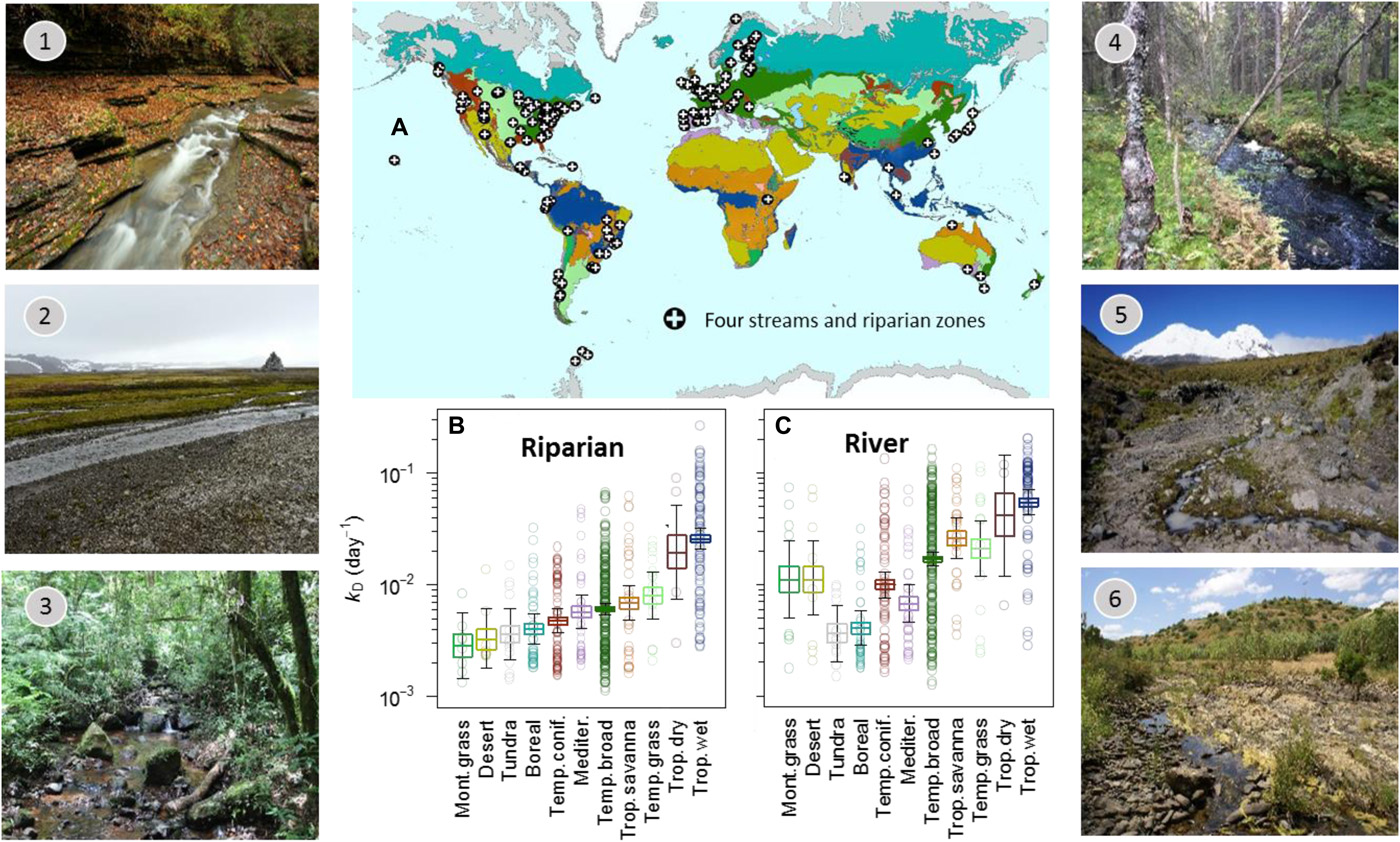Science Advances:全球尺度解析河流-河滨生态系统的功能模式及其驱动因素
River ecosystems receive and process vast quantities of terrestrial organic carbon, the fate of which depends strongly on microbial activity. Variation in and controls of processing rates, however, are poorly characterized at the global scale. In response, we used a peer-sourced research network and a highly standardized carbon processing assay to conduct a global-scale field experiment in greater than 1000 river and riparian sites. We found that Earth’s biomes have distinct carbon processing signatures. Slow processing is evident across latitudes, whereas rapid rates are restricted to lower latitudes. Both the mean rate and variability decline with latitude, suggesting temperature constraints toward the poles and greater roles for other environmental drivers (e.g., nutrient loading) toward the equator. These results and data set the stage for unprecedented “next-generation biomonitoring” by establishing baselines to help quantify environmental impacts to the functioning of ecosystems at a global scale.

Source: Science Advances 09 Jan 2019: Vol. 5, no. 1, eaav0486
http://advances.sciencemag.org/content/5/1/eaav0486
